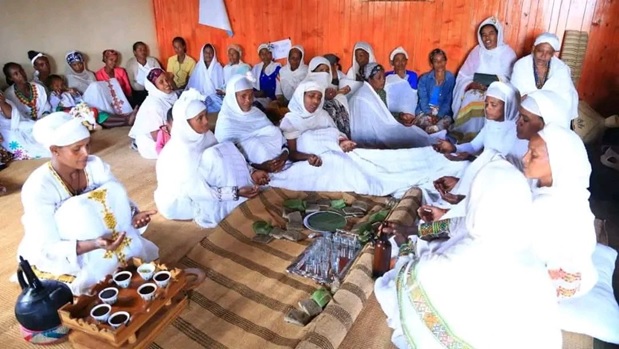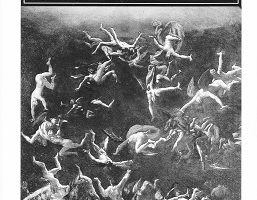
The end of February and the first days of March, which we call March 8, is a day when women are praised for their work; those who made history are remembered; they mourn the oppression they have experienced in the past and express their full heart and strength for a better tomorrow, and they prove that women can work. Therefore, International Women’s Day (March 8) is celebrated with various events at the national level and with events that elevate women at the institutional level.
The result of the March 8 struggle is to protect women, defend their rights and interests, and respond to women’s struggles. This is an idea at the international level, but studies indicate that the movement to respect women’s rights began earlier at the cultural level.
For example, among the Guraghe people, the first democratic question raised at the national level, demanding respect for women’s equality, was raised by Qaqe Wurdot, who fought for women’s rights despite being condemned by the community. Qaqe Wurdot was the first woman to raise the question of respect for women’s rights before the question was raised in the United States. However, since this question did not become an international issue, today we celebrate International Women’s Day without our own.
However, it cannot be said that women’s equality has been confirmed to this day. Even today, there are still many unimplemented women’s rights. There are still gaps in the culture of women’s equality. There is still work to be done to ensure women’s equality. Although there are many other works in promoting women’s culture and bringing cultures forward, few have been presented to the public.
It is also expected of the media to promote the unspoken national traditions, so for today’s “National” column, we have finished reading the Guraghe tradition of honoring women, which has a history of over 300 years.
The head of the Gurage Zone Culture and Tourism Department, Mesret Amerga has had a moment of togetherness with the Ethiopian Press Agency and conveyed a detailed explanation on the subject.
Antrosht
Antrosht (Mother’s Day) is a tradition that has been used by the Guraghe community for 300 years to honor women, care, economic, social, and political participation. Antrosht not only preceded International Women’s Day. It is a tradition that has ensured gender equality even before the Ethiopian Constitution.
In this regard, the constitution has also ensured that women have rights, without giving them rights. In this, we find the Guraghe community giving this special tradition a different interpretation in Amharic. In the community, Antrosht means different, unusual when analyzed in Amharic. The reason for this is that women spent a long time under oppression, without being guaranteed their rights. They did not have economic benefits, participation, and other rights. Thus, they yearned for freedom and worked for their rights and benefits even in difficult times. This internal struggle allowed them to get a special opportunity one day. They created a special holiday where they could worry about themselves and take a break. This is the holiday called “Antrosht”, which is celebrated once a year.
In this culture, mothers are allowed to rest and enjoy themselves more than usual from work and fatigue. Their children give them various gifts. It is also a place where women feel the right of ownership; they get the opportunity to perform activities independently. It is also a place where they can develop the value of saving money; and they know their place in their husbands and their environment.
Antrosht is a special day when a quarrel is reconciled; a husband honors his wife and prepares a meal in turn. It is also a day when a cow is slaughtered for mothers; a festival where mothers and women from the neighborhood gather and prepare special traditional dishes and celebrate with great enthusiasm. What makes Antrosht special is that the husband also sings a special song for his wife.
On Antrosht, mothers are washed and unsalted butter is applied to their breasts and their entire bodies, and they are also made to look beautiful with the modern women’s beauty technique called “steam”; they are seen adorned with special festive clothes and jewelry.
On Antrosht, the butter-making ritual is determined by the gender of the mother’s eldest child. For example, a mother who has a female eldest child is anointed with butter by her eldest son. If her eldest son is a boy, she is anointed by her son’s wife.
Even childless women are honored during the Antrosht festival. It is considered that they are the ones who have taken care of all the children in the area and raised them with good morals. Therefore, on this day, these mothers also take a day off from work; they celebrate the festival with their neighbors. Gifts are given to them from various sources. Just like mothers with children, they are also required to do the same, so there is nothing left for them.
Another thing that is done during this festival is that exemplary mothers are also given special attention and are honored. This festival is not about mothers getting up at noon and spending the night collecting wood, drawing water, baking bread, cleaning their surroundings, and performing similar tasks, as they usually do. Instead, they are treated with the words, “We should rest and be honored for a day.” In addition to eating various traditional drinks and foods, they are also made to listen to special, delicious songs.
This is done by choosing a woman with a beautiful voice and singing for the mothers who are being honored. The poem that the singer sings mainly praises the contributions that mothers have made to society beyond their families. The poem can be given by their husbands, their children, the mothers themselves, and other people who attend the festival. However, the singer and her husband’s take the largest part.
On the Antrosht festival, children express their love and respect for their mothers, their gratitude, and talk about themselves. In addition, the tradition of women’s savings is widely practiced at the Antrosht festival. This happens before the festival is approaching; even the butter that mothers use to anoint themselves, which is the highlight of the festival, is saved in the form of savings. The grains for the food that is drunk and eaten, including coffee, are prepared with the money saved.
Even the money that is used for other expenses is saved for the Antrosht. No one has the right to reduce it for any reason. Because the main purpose of Antrosht is to honor the mother who cannot be replaced by anyone.
Ye”Genye”
The second festival celebrated by the Guraghe community with special attention to women is the festival called “Genye” by the community, which is a manifestation of the honor of girls.
The festival is a time to give great respect and love to a girl; among the Guraghe, when a woman reaches the age of marriage, she goes to her husband’s place and believes that the wedding that day is not enough. Therefore, before the wedding ceremony is completed and the wedding is held, various rituals are performed for her.
The parents who perform the Genye ceremony, brothers and sisters, aunts and uncles, and all those who are friends call her until the eve of the wedding; they feed her, drink with her, and give her love and respect. They also give her gifts that will be the foundation for her future life.
This tradition is divided into two types; the first, as mentioned above, is performed by the bride’s family, relatives, and friends before the wedding. The second is performed by the bride’s family after the wedding, when she goes to her husband’s house in the form of a honeymoon.
BY LAKACHEW ATINAFU
THE ETHIOPIAN HERALD FRIDAY 11 APRIL 2025




